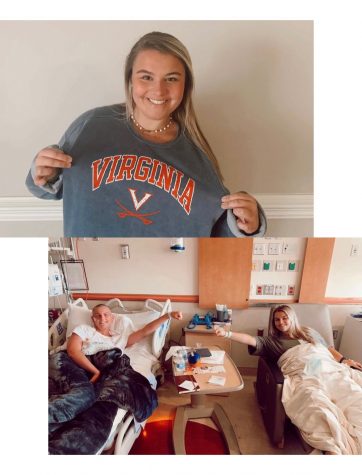During Unprecedented Times, Sports Prevail
In the United States, sports means everything. It means closing up shop and heading to the local High School basketball gym Wednesday night. It means carpooling with friends to a football field Friday night under the lights. It means hurrying home to turn on the television, grabbing the favorite player’s replica jersey, and screaming in the living room as a team and player of choice performs artistry on the playing surface. Sports is a culture. A lifestyle that has no race, no political preference, no gender; it’s just competition in its purity. But in early 2020, it disappeared.
The disaster in which the year 2020 was, began January 26th when the world lost a legend of a basketball player and a remarkable human being, Kobe Bryant. “He was invincible on that court. When I heard the news, I thought it was a joke because Kobe never lost,” said Christian Moore, a senior co-captain of the Varsity Boys Basketball team at Cape Henry. In many ways, people had the same reaction. This is the same man that continued to play basketball with a torn Achilles tendon, the same man that won five NBA championships with Los Angeles Lakers, the same man who started a girls basketball program to help his daughter Gianna with her journey to basketball stardom, the same man who won an Oscar for best short animated film in 2018. He did everything and prevailed through everything all because he was willing to outwork the next guy. Kobe defined the term, “and then some”.
As January came to a close, February came. The first American died of coronavirus. This causes the real destruction of the sports world. As March approached, The NBA had all of the sudden canceled their regular season games, The NCAA had canceled conference tournaments, and before you knew it, March Madness was canceled. Not just Basketball, but Major League Baseball was postponed, The National Hockey League was postponed, and Major League Soccer. For almost three months, people were stuck watching reruns and old highlights on ESPN, not being able to watch their favorite sports teams play live. A sense of hopelessness and sadness amongst sports fans was felt in every aspect. Cole Downs, a Cape Henry senior, summed up that feeling best: “Football, Basketball, Baseball, across all levels, bring the people together. Losing that made me feel hopeless and I didn’t have anything to look forward to.” The lack of sports being played truly had an effect on people and their mental state because of how valued the culture of sports is. As the summer approached, everyone was on pause, still feeling defeated, but then came June 26th.
In the last week of June, the NBA announced that they would restart their season in a bubble format at Disney World in Orlando. The players would have to stay in their room when not playing, and only attend the bubble by themselves, no family or friends. The lifestyle from the player’s point of view was difficult, but their resilience and love for basketball brought hope back to sports fans across the country. July 30th marked the first live sports events since March. Before people had the time to blink, then came the MLB announcement of their restart, then came the reschedule of the Masters Golf Tournament, then came plans for the restart of NFL football. Slowly but surely, sports were being played again and slowly but surely, sports culture was being revived. Soon came the NBA finals between the Los Angeles Lakers and the Miami Heat, along with the Major League Baseball World Series between the Los Angeles Dodgers and the Tampa Bay Rays, and Dustin Johnson’s miraculous performance at the Masters in Augusta, Georgia having the lowest ever recorded score in Masters history. Amidst all of that, sports fans were having watch parties via Zoom and back to sitting in the living room with their families yelling at the TV like maniacs, expressing their inner fanatic. Even though there were no patrons at the Masters, no fans at the NBA finals, and only paper cutouts in the stands at the World Series, the feeling of hopelessness and sadness had been relieved.
When trying to define sports culture, Mr. Angilly, a valued member of the Cape Henry Collegiate community, said it best. “Sports are my passion and I love to see kids chase their dreams and learn important values through sport”. Sports culture consists of passion for a team or player, the joy in which it brings people when their respective team wins, and the respect in which they show an opponent and each other regardless of victory or defeat. Bringing communities together is something that sports accomplish regardless of personal differences. COVID-19 took a shot at defeating sports altogether, but because of how valued the idea of competition is and the passion which resides in every fan, sports prevailed.
